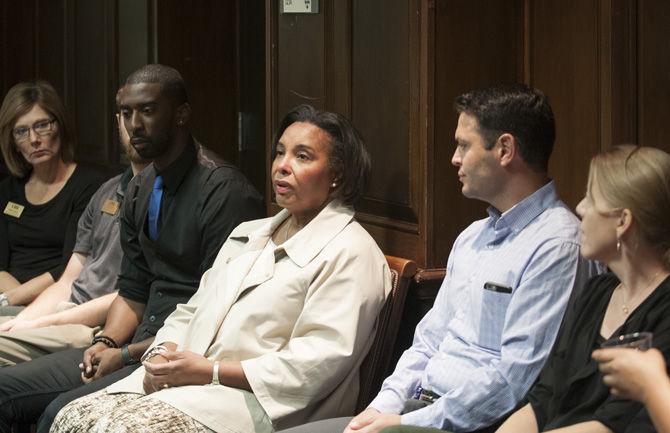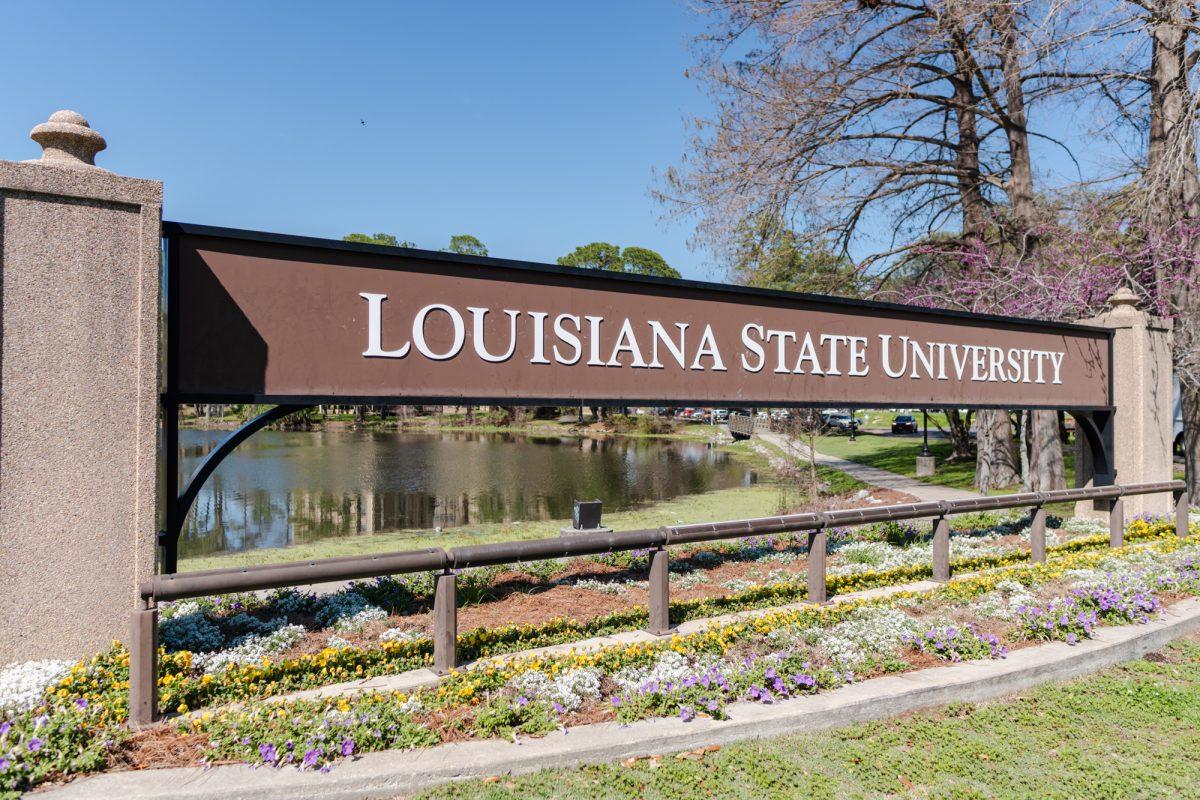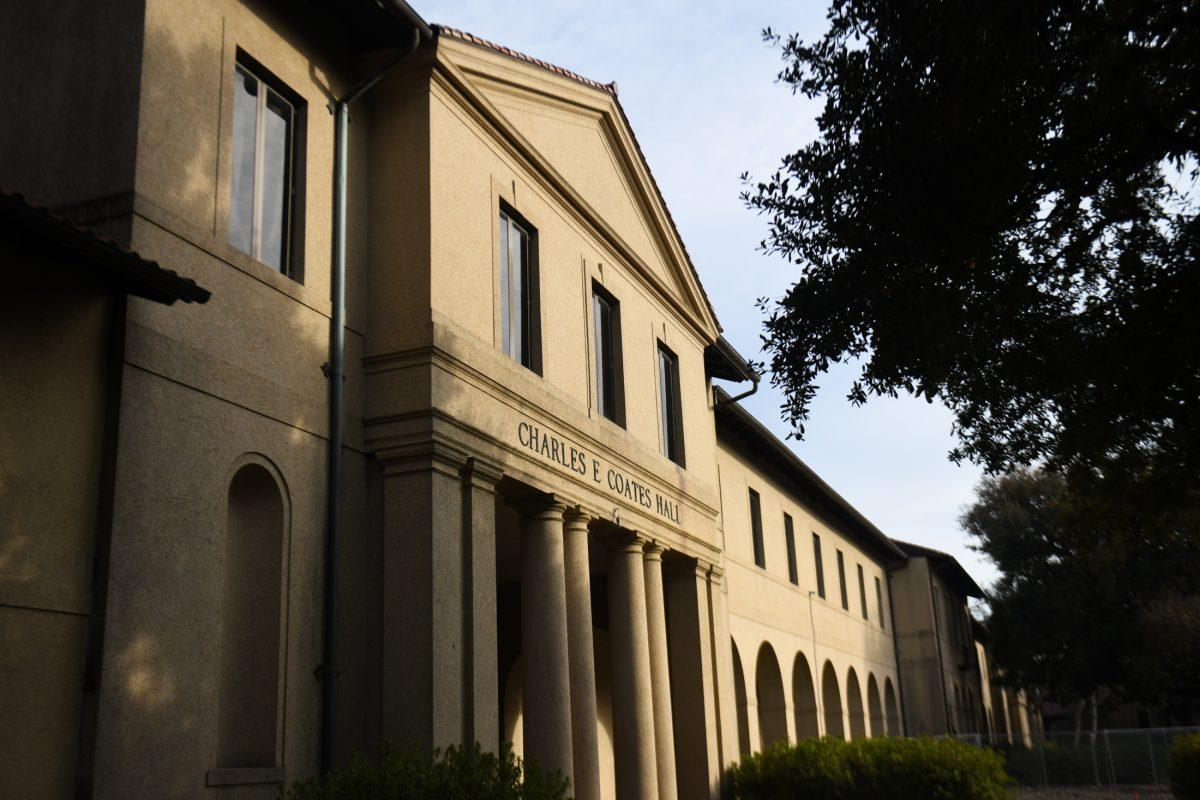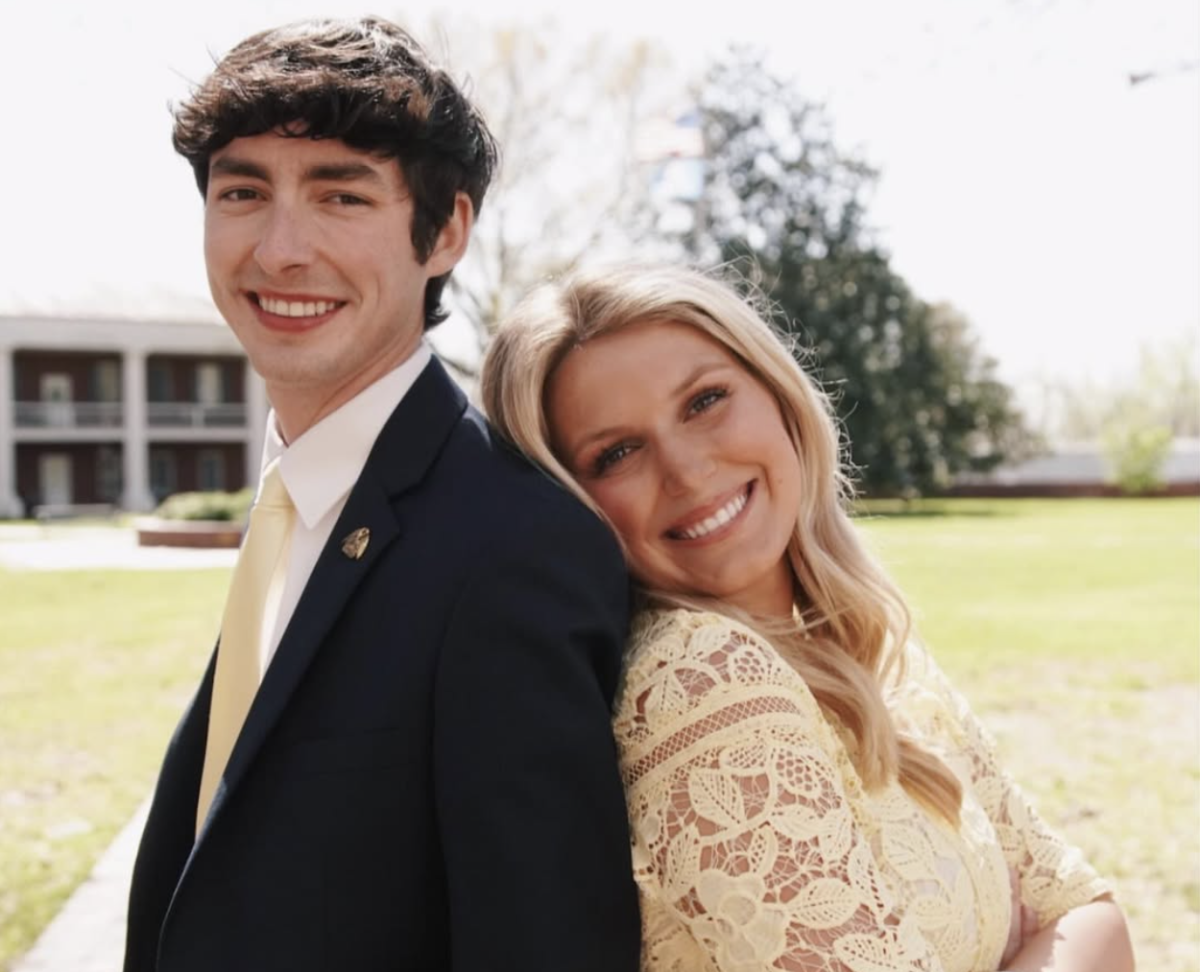University faculty and staff discussed the city’s next steps during the Office of Diversity’s new Chat and Chew initiative Tuesday.
Vice Provost for Diversity Dereck Rovaris said the initiative allows faculty and staff to interact across disciplines and engage in challenging discussions in a safe space. Taking a moment to reflect on community issues is especially important after the summer and fall the community has endured, he said.
“Things seemed a little bit normal for a while, and then they fire the football coach, the tiger dies and it just never seems to end,” he said.
The city’s main focus moving forward will be the community response to the Department of Justice investigation into Alton Sterling’s death, he said. The Department of Justice and local law enforcement representatives have indicated the decision will be announced between the end of November and early January, Rovaris said.
The University’s prominent role in the city means it has an important role in shaping how the community responds to the findings. The University needs to be a model citizen and represent fairness, access and inclusion to encourage those behaviors in other areas of the community, he said.
Engaging the campus and community in discussions about the issues is an important facet of shaping community response, Rovaris said. A main focus of Tuesday’s discussion was the relationship between law enforcement and the community.
LSU Discover program manager Sarah Ferstel said the seeming militarization of the police creates a frightening persona that produces distrust and unease in the community. Though officers need to protect themselves from harm, officers’ unnecessary use of force compounds negative perceptions and increases the divide between officers and community members, she said.
Ferstel said today’s officers seem more willing to resort to violence to resolve incidents than in the past. Ferstel said she personally experienced this after calling the police when a neighbor’s home was broken into. The responding officers immediately pulled their weapons when Ferstel opened her door to direct them to her neighbor’s home, she said.
Clovier Torry, director for graduate recruitment, retention and diversity, said there are often disparities in officers’ use of force. In black neighborhoods in the 70802 and 70805 zip codes, officers typically respond to incidents with blaring sirens and an obvious show of force. They often enter and exit white neighborhoods discreetly, she said.
Higher education administration Ph.D candidate Aeryel Williams said she’s never been intimidated by law enforcement, but recent events have changed her perception of police officers. Williams said she no longer feels comfortable or safe in the presence of the police.
Williams lived in Florida at the time of the Trayvon Martin shooting and said she was disappointed by the law enforcement and legal response. Williams said she wanted to take a more proactive approach after this summer’s shootings.
Williams said it’s important for the University to engage in larger conversations and activities outside campus boundaries to help produce change.
Rovaris said the University is pursuing several community engagement opportunities, including a joint panel with Southern University Nov. 3. Student body representatives from both universities will gather with members from the National Organization of Black Law Enforcement Executives to discuss the intersectionality of black communities and police, he said.
LSU Office of Diversity launches new faculty initiative
October 25, 2016
The Office of Diversity holds its monthly Chat and Chew on October 25, 2016 in the Student Union.
More to Discover












